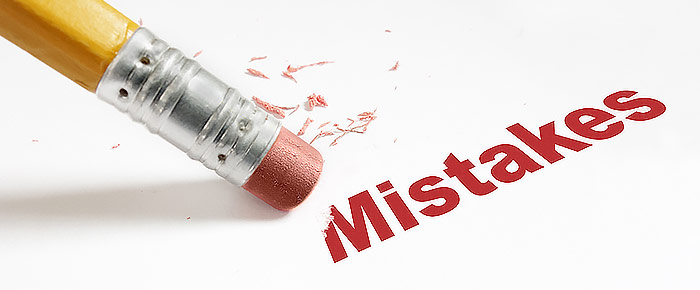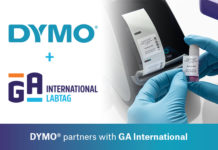
Making mistakes is something that comes with being human. Everyone makes mistakes, both large and small. It’s nothing to be ashamed of, no matter whether you’re just beginning your career in science, a manager running a research or medical lab, or an experienced investigator. Here are some tips on how to respond when making a mistake in the lab.
Step 1: Stop and think
Sometimes, your first instinct upon realizing you’ve made a mistake is to overthink the situation. As people tend to overreact and immediately think about the worst-case scenario, it might seem like a good idea to try to fix the problem as soon as possible. However, rash judgement, especially under the duress of working in a busy lab, can lead to actions that have permanent and potentially dire consequences. It’s worth assessing the situation first before either moving on with the protocol or stopping it completely. Quickly drawing a series of outcomes that could arise due to the mistake, even on a loose throwaway piece of paper, can help determine what your best course of action would be at the moment the error is made.
Step 2: Amend your notes
This should be done as soon as possible to ensure the mistake is properly recorded, leaving little doubt about the details of the exact nature of the error, and what might have caused it to occur. Even a slight error, regardless of the expected outcome, can have an unexpected effect on the results of a test. If you’re completing the assay, even after the mistake, it’s imperative to have a full description of the error on hand to properly assess the results. Having a full breakdown will also make it easier to find solutions so that the error doesn’t repeat itself.
Step 3: Inform others about the mistake
If an error occurs during a procedure, it’s generally not just your interests that will be affected. Once you’ve assessed the situation, it’s best to tell others who most depend on the results, whether it’s a supervisor, a manager, or others in your lab. If you happen to be in a position of leadership, it’s also important to make as much effort as possible to avoid laying blame on the one who made the mistake. No matter how experienced you are, mistakes, though infrequent, are impossible to avoid entirely—as the saying goes, “To err is human.” Assigning blame has a host of negative repercussions, including making it less likely that personnel will report their mistakes in the future and placing unnecessary stress on others as well. Having an open work environment is more conducive to honesty than one where personnel are lambasted for making an error.
Step 4: Discuss the mistake
The other advantage to having an open work environment is that once mistakes have occurred, it is possible to debate the cause of the mistake and to find solutions, using it as a learning experience. Unless it’s a relatively small, one-time mistake, it’s not enough to merely report it to your superior. There are two reasons that some form of discussion should be had between all staff and colleagues from your lab: 1) it informs others of the kinds of mistakes that can happen during a specific procedure, making everyone aware of the risks, and 2) it allows for more viewpoints and ideas when it comes to developing solutions to prevent these errors from recurring.
Step 5: Implement strategies to avoid the same mistake twice
Once you’ve come up with a strategy to avoid errors, it’s time to implement it. This means updating SOPs, lab books, LIMS, and anything else that requires changes to the protocol. It might also mean that additional training is required; for instance, integrating barcode labels or a new LIMS into your workspace may need training followed by a short period of testing to ensure it runs smoothly. The key is to be consistent when applying a new strategy to avoid errors. Everyone must be on the same page, and for critical errors, the systems you choose to mitigate them with should be broad enough that they can be applied to other techniques and procedures, boosting the entire lab’s ability to negate errors, not just a small section of it.
LabTAG by GA International is a leading manufacturer of high-performance specialty labels and a supplier of identification solutions used in research and medical labs as well as healthcare institutions.


